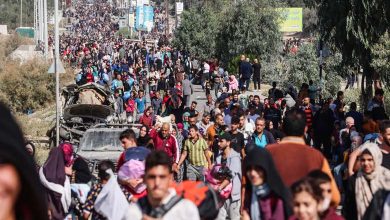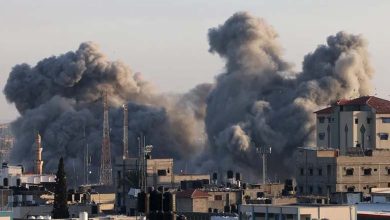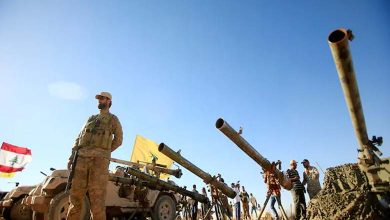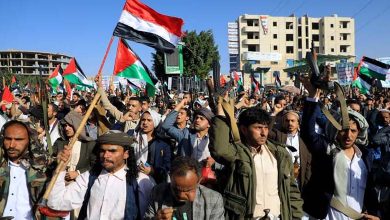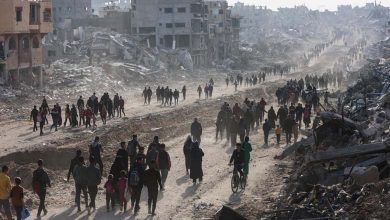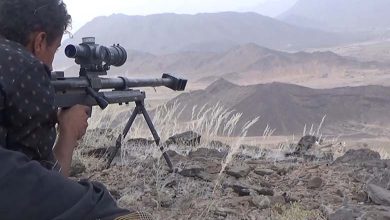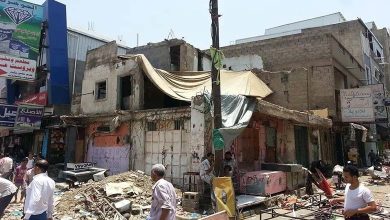Ghost of famine looms over Gaza amid aid shortages
The International Freedom Flotilla Alliance intends to deliver humanitarian aid to the Gaza Strip by sea due to intensified Israeli attacks
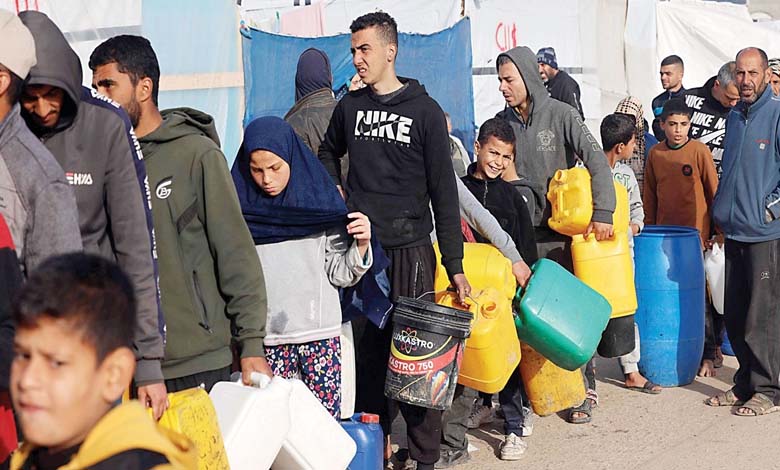
The specter of famine hangs over the Gaza Strip amid a shortage of humanitarian aid, with the spokesperson for the International Federation of Red Cross and Red Crescent Societies, Thomaso De La Longa, describing the situation as “beyond catastrophic,” explaining that the level of hunger in the region has left people “helpless.”
On February 5th, the United Nations spokesperson, Stephane Dujarric, confirmed during a press conference that “Israel continues to obstruct the delivery of most aid to the northern Gaza Strip.” Dujarric then pointed out that only 10 aid operations reached northern Gaza out of 61 operations last January.
In discussing the importance of providing a proper humanitarian response to the needs of the people in Gaza, Longa said that there is “a need for more humanitarian aid to the sector and also for safe access to deliver this aid.”
He added, “The entry of humanitarian aid into Gaza was made under an agreement between Israel, Hamas, and regional and international stakeholders, and to bring in more aid, of course, we will need more diplomatic efforts,” emphasizing the importance of “halting the conflict to establish safe humanitarian zones that enable them to access the entire Gaza Strip.” He continued, “Areas in northern Gaza where thousands of Palestinians live are almost inaccessible, and the state of health services there is worrying.” He pointed out that the Federation “has made every effort on the ground with the Egyptian and Palestinian Red Crescents,” without providing further details, saying “I conveyed my concerns to both sides in bilateral meetings.”
According to data from the United Nations Office for the Coordination of Humanitarian Affairs (OCHA), the number of aid trucks entering Gaza decreased after the International Court of Justice decision calling for aid to be delivered to civilians.
He pointed out that two weeks before the court’s decision, an average of 156 aid trucks entered Gaza daily, although the average number of trucks allowed was 93, while the figure before the war was about 600 aid trucks daily. Regarding the risks facing the health sector in Gaza, Longa said that “the risk of all hospitals ceasing to provide services is possible,” adding that about “30 percent of health facilities in the sector are barely operational.”
He continued, “The health system has largely collapsed, and we really have to thank the doctors and nurses there for their efforts, without them the health system might have already collapsed.” He also called on “all parties to protect and respect hospitals, ambulances, and healthcare workers,” noting that 1.8 million out of 2.3 million people living in Gaza have been displaced more than once during the conflict. He added, “Gazans often find themselves forced to leave their homes without taking anything with them; they have been displaced between 5 and 6 times, and in reality, they have nowhere to meet their needs. In addition to water, health, and protection, food presents a major problem for them.”
On February 9th, the World Food Programme warned that the risk of famine in the Gaza Strip is increasing daily, confirming that “the arrival of aid to the city of Gaza is not enough to prevent famine.”
The UN-affiliated program said in a statement that “the risk of famine in Gaza is increasing, especially for an estimated 300,000 people in the northern Gaza area, who have been largely cut off from aid.” It warned that the arrival of aid to the city of Gaza is not enough to prevent famine, stressing the urgent need for humanitarian access to be faster and more sustainable.
The International Freedom Flotilla Alliance intends to deliver humanitarian aid to the Palestinian Gaza Strip by sea due to intensified Israeli attacks. The International Freedom Flotilla Alliance comprises a large number of international civil society organizations and activists, including the Turkish Humanitarian Relief Foundation.
The alliance is supported by organizations from Canada, the United States, New Zealand, Australia, Norway, Malaysia, Sweden, South Africa, Spain, and Turkey. In turn, the head of the Turkish Humanitarian Relief Foundation, Bulent Yildirim, said that Israel continues the siege and escalates the massacres in Gaza despite the unanimous world. Yildirim pointed out that the Freedom Flotilla seeks to lift the siege on Gaza and give the Islamic world and the international community a chance to find solutions.


